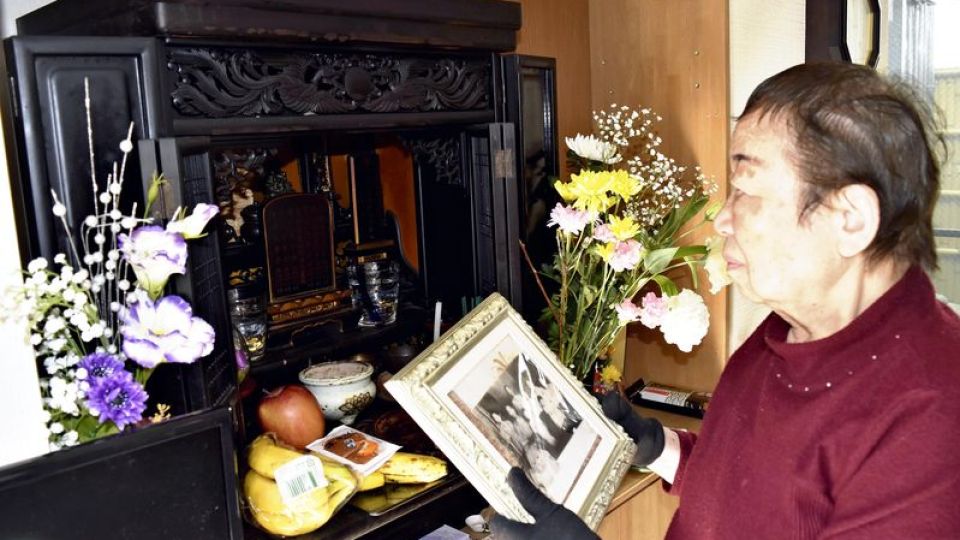March 11, 2022
TOKYO – In the predawn hours of March 10, 1945, the United States indiscriminately bombed Japan’s capital using B-29s, killing 100,000 people in what became known as the Great Tokyo Air Raid.
Praying for the victims and for peace on Thursday, 77 years after the attack, bereaved families also reflected on Russia’s indiscriminate use of force killing many civilians in its invasion of Ukraine.
“Unarmed civilians are blameless,” said Toshiko Kameya, 90, a survivor of the Great Tokyo Air Raid that took six of her family members.
Having experienced the horrors of war, she thinks of the people in Ukraine who are terrified at this very moment.
“I hope the world will be a place where people don’t have to suffer from war,” she said.
On Thursday morning, Kameya put her hands together to pray in front of the Buddhist altar at her home in Bunkyo Ward, Tokyo.
Remembering the events that occurred 77 years ago, Kameya said an air raid siren sounded in the wee hours of March 10. She was 13 and living in what is now Koto Ward. Her father got her out of bed and she ran out of the house. She somehow managed to escape the sparks of fire flying everywhere. Her mother and siblings who escaped to a nearby building were engulfed in flames.
A few days later, she saw the bodies of her family members.
“It didn’t feel real, so I didn’t feel sadness at that moment,” she said.
The raid burned down about 270,000 houses in the heart of Tokyo. Kameya lost her house and all her belongings.
When the war ended, Kameya went to farming village to get some food but had nothing much to trade. She often fainted from hunger.
She began working after graduating from junior high school. Whenever she faced hardships, she thought, “I wish my mom and sister were around.” The loneliness of losing her immediate family never fades even after 77 years.
Seeing images on TV of Russian artillery destroying Ukrainian towns, civilians being forced to evacuate, young children in a dim bomb shelter frightened by the sound of bombing, babies dying in a hospital — it all reminds Kameya of her own tragedy. She sheds tears thinking of her younger sisters who died around the same age as these children.
In her diary she writes a tanka poem to show sympathy with the people of Ukraine, who are at the mercy of Russia’s violence.
“The most wounded in war are the civilians,” Kameya said. “To avoid repeating tragedy, I want to continue to address the stupidity of war.”

